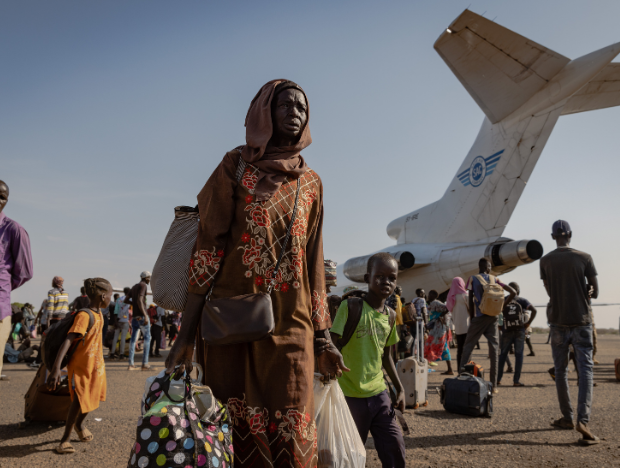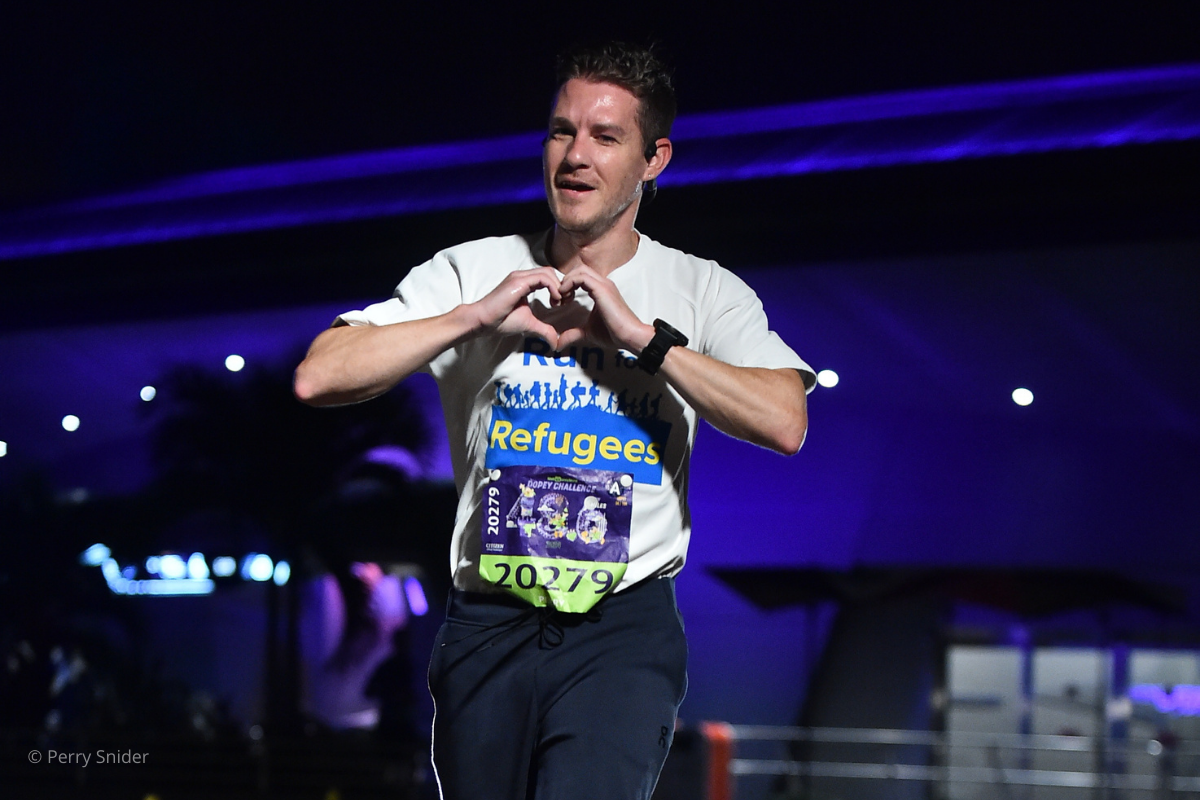What is WASH?
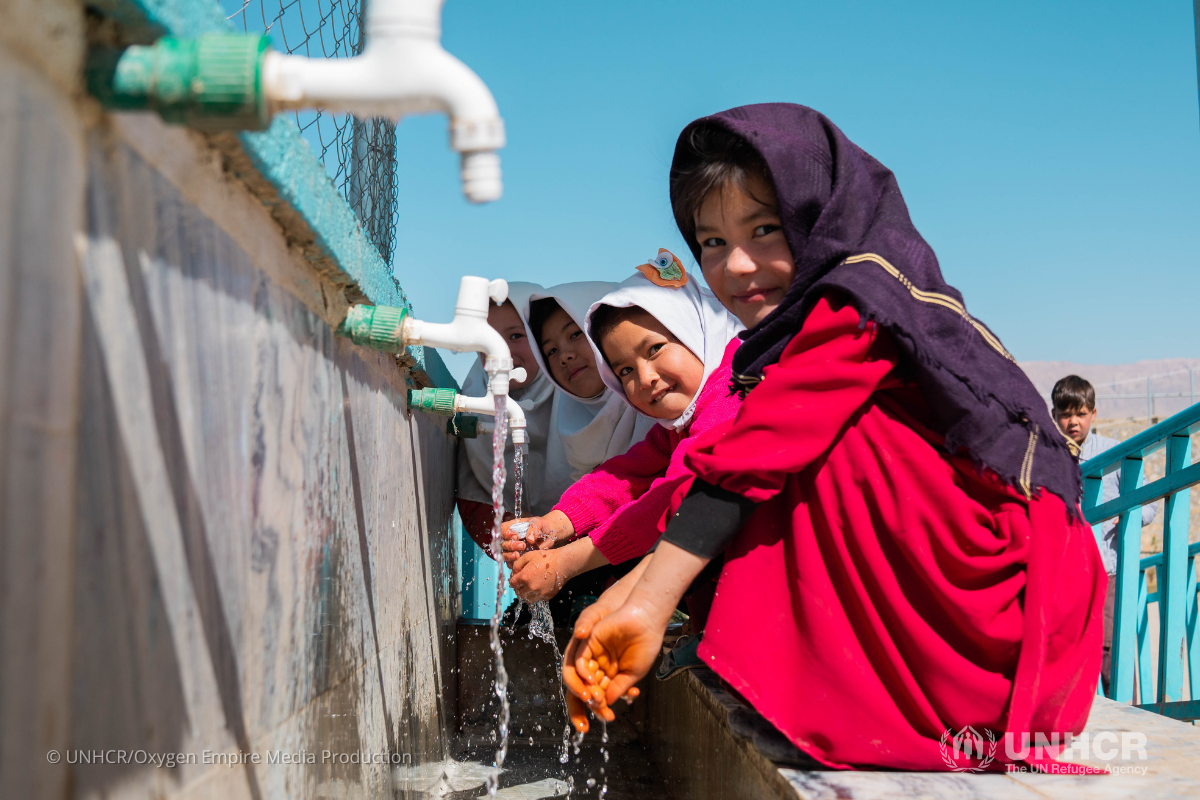
This World Health Day's theme, ‘My health, my right,’ couldn’t be more appropriate for the millions of refugees and displaced people caught in the middle of ongoing and emerging humanitarian crises. For many refugees living in refugee camps or densely populated areas, clean water and sanitation can be extremely difficult to access or are often well below basic standards—increasing the risk of diseases and infections.
UNHCR, the UN Refugee Agency, works with national authorities to ensure that refugees are included in national water, sanitation and hygiene (WASH) systems. WASH is the collective term for water, sanitation and hygiene — an area of UNHCR’s work related to providing refugees and displaced people with access to safe, clean drinking water, adequate sanitation facilities and hygiene products.
Learn more about WASH and how it can improve refugees' well-being and dignity.
What is WASH?
According to the Centers for Disease Control and Prevention, two billion people globally lack access to safe drinking water at home. Nearly half the world’s population do not have access to safely managed sanitation in their home. At least 2.3 billion people lack basic hygiene services, including soap and water at home. Without access to safe drinking water, adequate sanitation and hygiene, refugees and displaced people living in crowded living situations are especially vulnerable to disease and infection outbreaks.
The United Nations recognizes access to water and sanitation as human rights—fundamental to everyone’s health, dignity and prosperity. However, millions of refugees and displaced people are often overlooked and sometimes face discrimination as they try to access the water and sanitation services they need.
Why is access to WASH important for refugees?
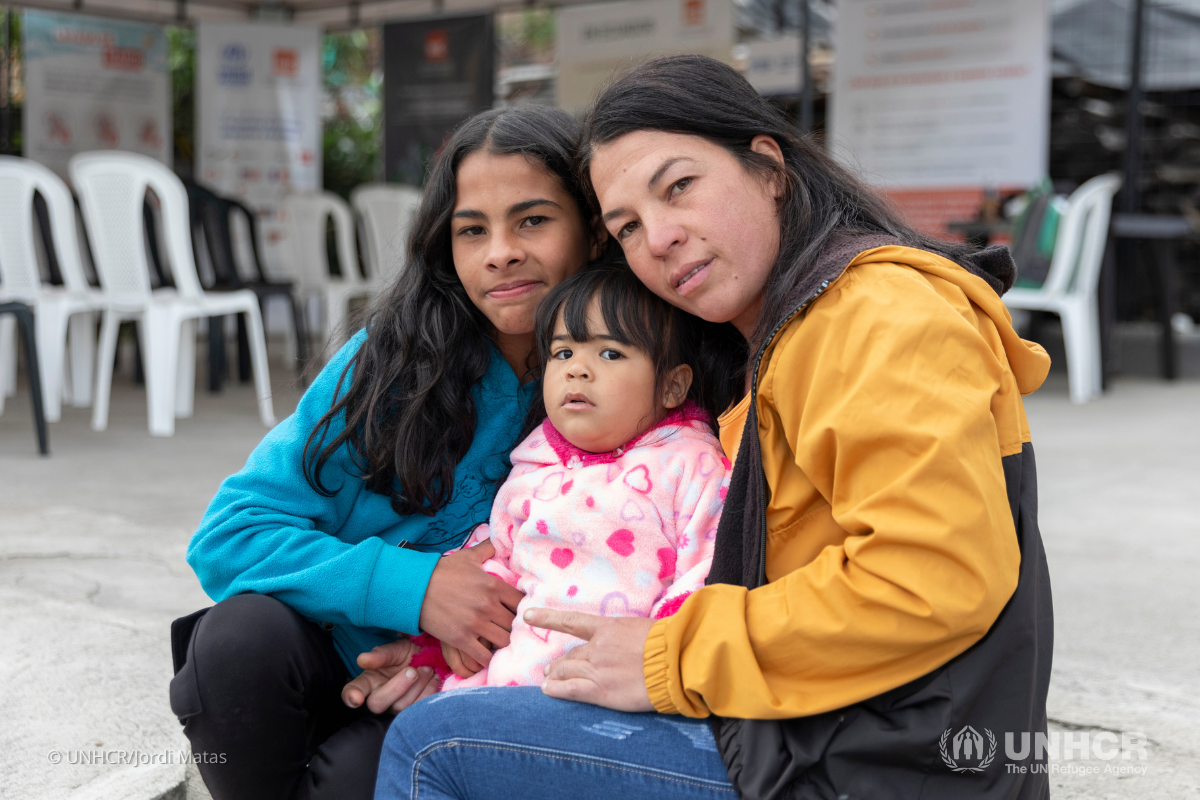
“If I had the opportunity of accessing these services when I arrived, I would not have suffered so much. This is why I now refer people here so they can get the help they need.”
When Yusleidy first arrived in Ecuador with her children after fleeing Venezuela, she was unsure how to access basic services that would address her most pressing health and sanitation needs.
This all changed when she came across Punto Wash in Julio Andrade, a WASH and information point supported by UNCHR in northern Ecuador. Punto Wash provides refugees and migrants in transit or newly arriving in the country with basic services such as showers, clothing, safe spaces for children and more.
When refugees and displaced people like Yusleidy are forced to flee their homes, the only thing on their minds is finding safety. Unfortunately, many refugees and displaced people continue to face challenges even after finding safety—often living in very densely populated areas or refugee camps where access to WASH is below basic standards.
Without access to adequate WASH services, refugees and displaced people are at risk of contracting and transmitting diseases and infections. When toilets and proper sanitation are unavailable, drinking and cooking water sources can become contaminated. Without soap and other hygiene products, including feminine hygiene products, pathogens can spread in households and communities.
Now that Yusleidy has access to the WASH services she needs to keep her family healthy and safe, she is leading the Venezuelan community in Julio Andrade and supporting efforts to integrate other people who have fled their homes.
What can complicate WASH services?
Nearly 60 percent of refugees and internally displaced people live in countries that are among the most vulnerable to climate change. Extreme weather events like floods, cyclones and droughts put pressure on already stretched water resources and WASH services.
As part of its efforts to adapt to climate change's impacts, UNHCR is strengthening the climate resiliency of critical WASH infrastructure. One example is infrastructure enhancements to prevent damage by floods and sustainable water resource management.
Who is most vulnerable to inadequate WASH conditions?
If a water collection site is located far away from home, refugees can spend hours each day traveling long distances or waiting at hand pumps or tap stands to collect water. The journey is especially difficult for women and girls who are often responsible for household water collection. According to a USAID report in 2020, women and girls are responsible for water collection in eight out of ten households with off-site water sources. They collectively spend 200 million hours every day collecting water. This results in less time spent in school, risk of physical injury (from carrying water on their heads) and higher risks of sexual, psychological or physical violence.
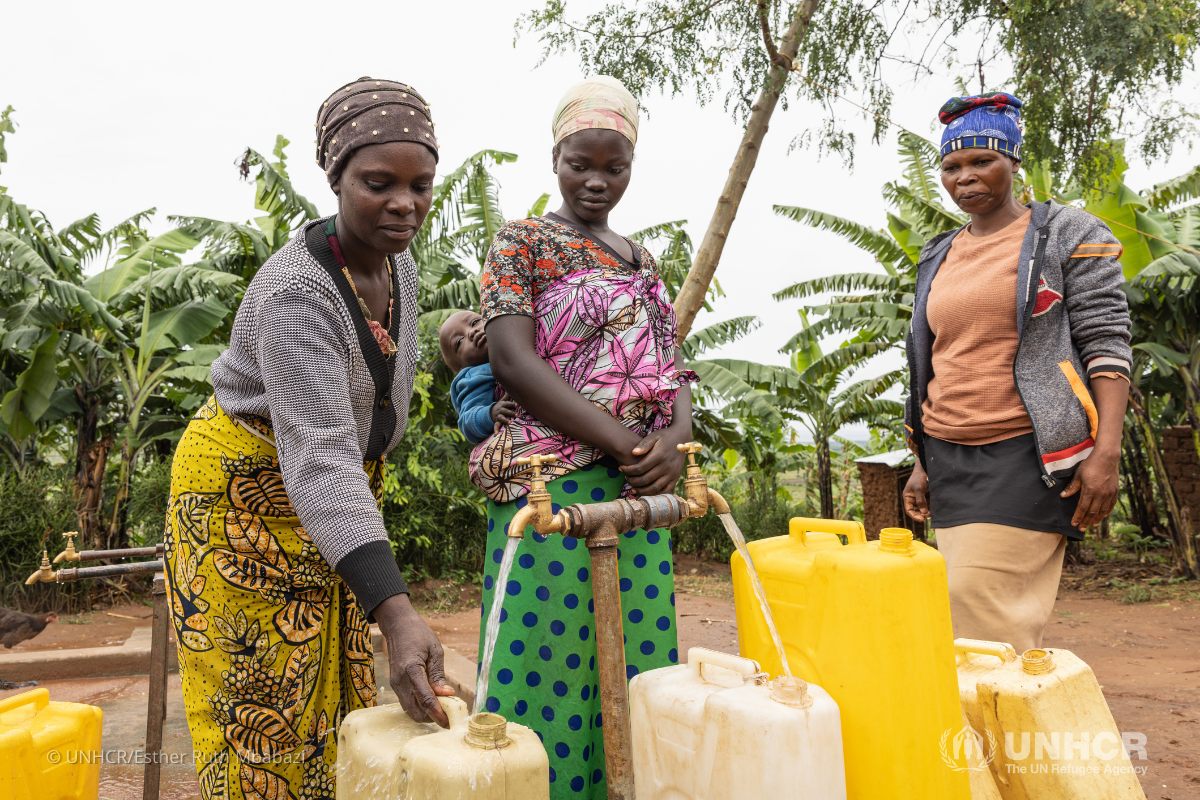
Nikuze Rachel and two of her children were forced to flee their home country, the Democratic Republic of the Congo (DRC), when conflict erupted. Rachel and her family faced numerous attacks while fleeing, but she knew they couldn’t turn back. Since 2006, they’ve called the Nakivale refugee settlement in Uganda home.
When Rachel and her family arrived in Uganda, they received assistance and were allocated land. But as more refugees and asylum seekers began arriving from the DRC and South Sudan, land and natural resources like clean drinking water began shrinking. In 2008, UNHCR and partners set up a water treatment plant to respond to the dwindling supply of clean water. The plant draws water from Lake Nakivale, treats it, and distributes it to refugees and surrounding host communities.
“Having tap water nearby is good. Instead of going up the hill, the water is closer, next to the road. The water is also safe for cooking. If you prepare porridge for example, the color is retained and the food is appetizing.”
Rachel is now the water committee chair for her village and ensures every family has access to water. “I manage the water supply in the community. I ensure order is maintained at the tap stands and everyone gets an equal share of water.”
How is UNHCR increasing refugee access to WASH?
During an emergency, UNHCR’s WASH initiatives ensure displaced people's immediate survival and dignity and prevent disease outbreaks. As the situation stabilizes, UNHCR will focus on sustainable solutions through capacity building, infrastructure improvement, and refugee-led hygiene promotion activities.
UNHCR also advocates for refugees’ inclusion in national WASH systems. Where national WASH systems do not apply to refugees or host communities that need support, UNHCR provides WASH capacity building, guidance, infrastructure upgrades, support for operation and maintenance and funding.
To prevent the spread of disease and ensure refugees have sufficient drinking water, UNHCR delivers water to areas without water supply infrastructure. UNHCR may also install toilets and support waste disposal while increasing access to soap, cleaning products and hygiene items.
UNHCR also works to increase refugee participation in WASH services through capacity building, refugee-led hygiene promotion activities and the establishment of WASH committees. Refugees participate in the design and location of water collection sites and toilets or the operation and maintenance of facilities and services.
How to Help
Everyone has the right to clean drinking water, sanitation and hygiene services. This World Health Day, join USA for UNHCR in providing critical WASH services to displaced people around the world by becoming a monthly donor.
